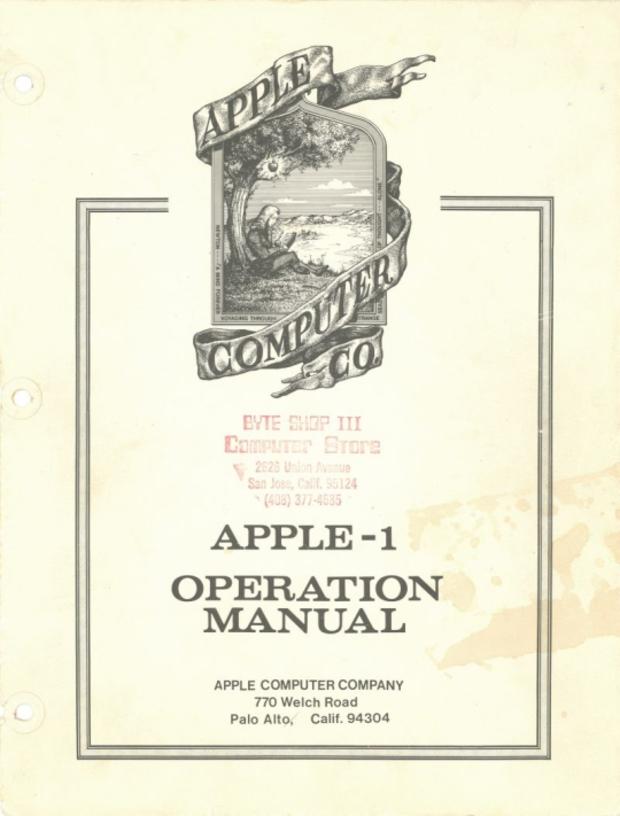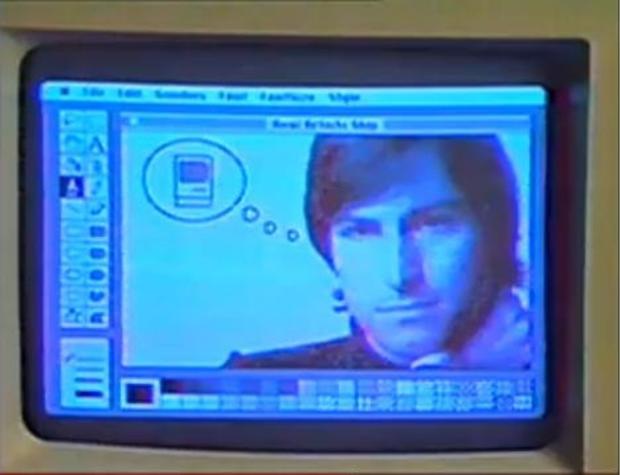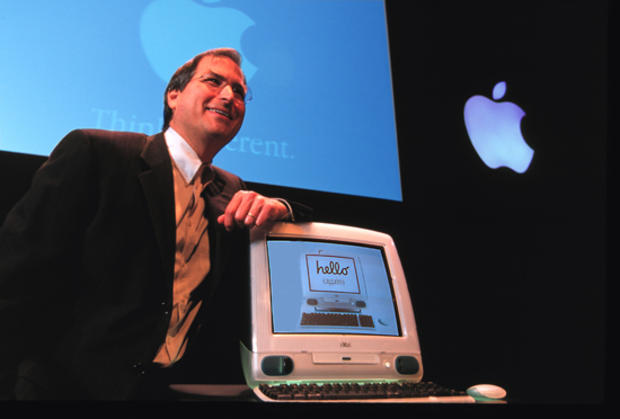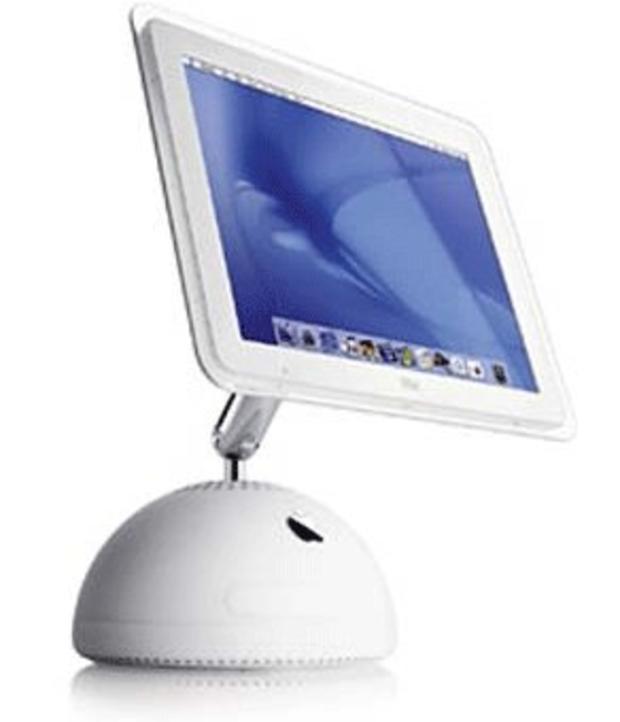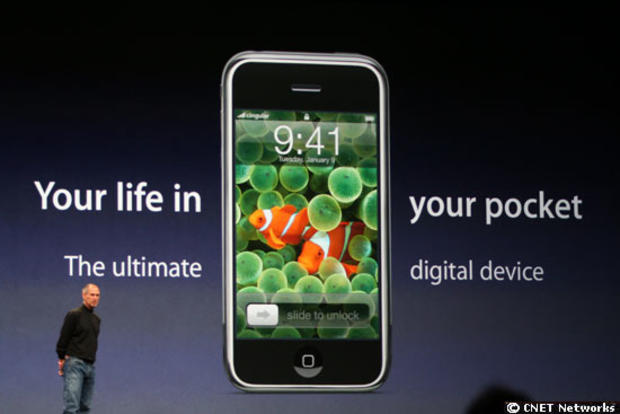Steve Jobs in his own words
This story originially appeared on CNET
For many people, Apple co-founder Steve Jobs spoke most vividly through the distinctive consumer electronics products and services he ushered into the world--the Mac, the NeXT computer, the iPhone, iTunes and the iPod. But Jobs, who died today at age 56, also left behind a record of his life in words, sometimes as a showman on stage, sometimes in more intimate interviews.
Below, we present some brief excerpts from those moments, in an effort to convey a sense of the man behind the popular machines.
GROWING UP IN SILICON VALLEY (ca. 1960)
"I grew up in Silicon Valley. My parents moved from San Francisco to Mountain View when I was five. My dad got transferred and that was right in the heart of Silicon Valley so there were engineers all around. Silicon Valley for the most part at that time was still orchards--apricot orchards and prune orchards--and it was really paradise. I remember the air being crystal clear, where you could see from one end of the valley to the other...It was really the most wonderful place in the world to grow up."
-- From an oral history interview with the Smithsonian Institution, April 1995.
FIRST COMPUTER (ca. 1967)
Playboy: "What was your introduction to computers?"
Jobs: "The first computer I ever saw was at Hewlett-Packard. They used to invite maybe 10 of us down every Tuesday night and give us lectures and let us work with a computer. I was maybe 12 the first time. I remember the night. They showed us one of their new desktop computers and let us play on it. I wanted one badly."
Playboy: "What was it about it that interested you? Did you have a sense of its potential?"
Jobs: "It wasn't anything like that. I just thought they were neat. I just wanted to mess around with one."
-- From an interview with Playboy, February 1985.
APPLE'S EARLY LUCK (mid-1970s)
"From almost the beginning at Apple we were, for some incredibly lucky reason, fortunate enough to be at the right place at the right time. The contributions we tried to make embodied values not only of technical excellence and innovation--which I think we did our share of--but innovation of a more humanistic kind."
-- From the 1995 interview with the Smithsonian.
APPLE'S EARLY YEARS (the mid-1970s)
"Because Woz [Apple co-founder Steve Wozniak] and I started the company based on doing the whole banana, we weren't so good at partnering with people...I think if Apple could have had a little more of that in its DNA, it would have served it extremely well...I don't think Apple learned that until...a few decades later."
-- From an appearance at the D5 conference in 2005.
MOVING ON TO THE MAC (1981)
"Who cares about the Apple II?...The Macintosh is the future of Apple, and you're going to start on it now."
-- Said to Andy Hertzfeld, then a young engineer, in February 1981 when he was being moved from the Apple II group to the Mac unit. As recounted by Hertzfeld in "Revolution in the Valley: The Insanely Great Story of How the Mac Was Made."
HIRING JOHN SCULLEY (ca. 1983)
"Do you want to sell sugar water for the rest of your life or do you want to come with me and change the world?"
-- Said to John Sculley, then a top executive at Pepsi-Cola, when Jobs was recruiting him to lead Apple. As recounted by Sculley, who served as Apple's CEO from 1983-93, in the PBS documentary "Triumph of the Nerds," which premiered in June 1996.
"You've just seen some pictures of Macintosh. Now I'd like to show you Macintosh in person."
-- From the unveiling of the Macintosh, January 1984.
"It is with considerable pride that I introduce a man who's been like a father to me...STEVE JOBS."
-- The Macintosh, at its unveiling.
VISION OF COMPUTING (1985)
"A computer is the most incredible tool we've ever seen. It can be a writing tool, a communications center, a supercalculator, a planner, a filer and an artistic instrument all in one, just by being given new instructions, or software, to work from. There are no other tools that have the power and versatility of a computer. We have no idea how far it's going to go. Right now, computers make our lives easier. They do work for us in fractions of a second that would take us hours. They increase the quality of life, some of that by simply automating drudgery and some of that by broadening our possibilities. As things progress, they'll be doing more and more for us....
"The most compelling reason for most people to buy a computer for the home will be to link it into a nationwide communications network. We're just in the beginning stages of what will be a truly remarkable breakthrough for most people--as remarkable as the telephone."
-- From the 1985 Playboy interview. The writer described Jobs this way: "He is on a mission, preaching the gospel of salvation through the personal computer--preferably one manufactured by Apple. He is an engaging pitchman and never loses an opportunity to sell his products, eloquently describing a time when computers will be as common as kitchen appliances and as revolutionary in their impact as the telephone or the internal-combustion engine."
FORCED OUT AT APPLE (1985)
"I was basically fired from Apple when I was 30, and was invited to come back 12 years later. That was difficult when it happened, but maybe the best thing that ever happened to me."
-- From a "60 Minutes" interview in 2003.
TASTE AND TECHNOLOGY (ca. 1996)
"Ultimately it comes down to taste. It comes down to trying to expose yourself to the best things that humans have done and then try to bring those things in to what you're doing. I mean Picasso had a saying, he said good artists copy, great artists steal. And we have always been shameless about stealing great ideas, and I think part of what made the Macintosh great was that the people working on it were musicians and poets and artists and zoologists and historians who also happened to be the best computer scientists in the world...
"The only problem with Microsoft is they just have no taste...I don't mean that in a small way, I mean that in a big way, in the sense that they don't think of original ideas, and they don't bring much culture into their product...So I guess I am saddened, not by Microsoft's success--I have no problem with their success; they've earned their success for the most part. I have a problem with the fact that they just make really third-rate products."
-- From "Triumph of the Nerds."
RETURNING TO APPLE (1997)
"I wouldn't be honest if some days I didn't question whether I made the right decision in getting involved....But I believe life is an intelligent thing--that things aren't random."
-- From "Steve's Job: Restart Apple" in Time magazine, August 1997, on why he returned to Apple a decade after an unhappy departure.
That month, Bill Gates' Microsoft had just announced that it would invest $150 million in Apple and would develop versions of its Microsoft Office software suite, Internet Explorer browser, and other software for the Macintosh. The two longtime antagonists also said they would work to settle a dispute over whether Microsoft's Windows operating system infringed on any Apple patents.
"Understand," wrote Time, "the idea of Jobs returning to Apple is something akin to that of Luke Skywalker returning to fight what, until last week, cultists regarded as the evil empire. Gates, by comparison, was perceived as a dweeb Darth Vader, the billionaire bad guy who usurped the idea of the Macintosh's friendly point-and-click operating system for his now dominant Microsoft Windows."
CO-EXISTING WITH MICROSOFT (1997)
"We have to let go of a few things here. We have to let go of the notion that for Apple to win, Microsoft has to lose."
-- From his Macworld Expo Boston keynote speech, August 1997.
"iMac comes from the marriage of the excitement of the Internet with the simplicity of Macintosh."
-- From the 1998 >unveiling of the iMac all-in-one device, arguably the most significant computer Apple introduced during the 1990s.
LEADING PIXAR AND APPLE (2000)
"I'm hoping that I've been able to prove to the shareholders of Pixar and the shareholders of Apple that I can manage to do both jobs adequately with the great team of people that are at both companies...so I thought it was reflective of reality [that the 'interim' modifier be dropped from his title as Apple CEO]...I am planning on staying around for a while, so I thought that we've demonstrated this can work pretty well...It just felt right to me."
-- From an interview with CNET in January 2000, when he became the permanent CEO at Apple.
APPLE OPENS ITS FIRST STORES (May 2001)
"Why these two? They were the first two that were ready."
-- Answering the inevitable question in May 2001 about why the first Apple Stores were to open in McLean, Va., and Glendale, Calif.
INTRODUCING THE IPOD (October 2001)
"What is iPod? Well, I happen to have one right here in my pocket. There it is, right there."
-- From the unveiling of the iPod in October 2001.
"It should look like a sunflower."
-- Said to Apple design guru Jonathan Ive as the company developed what would eventually become the iMac G4. As told by Ive to Time magazine, in "Apple's New Core" in January 2002, when the iMac G4 was unveiled at Macworld Expo in San Francisco.
"At best, people thought it was rather odd," Ive told CNET at the time. "I actually think this is less shocking than the [original] iMac was."
APPLE INTRODUCES THE ITUNES MUSIC STORE (April 2003)
"We were able to negotiate landmark deals with all of the major labels....There is no legal alternative that's worth beans."
"On the good side, [services like Kazaa] are instant gratification, showing the Net was built for music distribution. On the downside, it is stealing, and it's best not to mess with karma."
-- From the introduction of the iTunes Music Store in April 2003.
LEADERSHIP ROLE MODELS
"My model for business is The Beatles.There were four guys who kept each others, kind of, negative tendencies in check. They balanced each other, and the total was greater than the sum of the parts. And that's how I see business. You know, great things in business are never done by one person. They're done by a team of people.
-- From a "60 Minutes" interview in 2003.
APPLE'S TALENTS, JOBS' CONFIDENCE (December 2003)
"Apple has a core set of talents, and those talents are: we do, I think, very good hardware design; we do very good industrial design; and we write very good system and application software. And we're really good at packaging that all together into a product...We're the only people left in the computer industry [who] do that. And we're really the only people in the consumer electronics industry [who] go deep in software in consumer products. So those talents can be used to make personal computers, and they can also be used to make things like iPods."
-- From an interview with Rolling Stone in December 2003. Asked if he had wrung his hands over the decision to bring iTunes to Windows, Jobs told the music magazine, "I don't know what hand-wringing is."
"Today Apple is going to reinvent the phone, and we are calling it iPhone."
-- From the unveiling of the iPhone in January 2007. And it's more than just a phone, Jobs said: "iPhone is like having your life in your pocket."
REGARDING ADOBE FLASH (April 2010)
"Our motivation is simple--we want to provide the most advanced and innovative platform to our developers, and we want them to stand directly on the shoulders of this platform and create the best apps the world has ever seen."
-- From an April 2010 letter explaining why Apple would not allow Adobe Flash or Flash-derived apps onto the iPhone, iPad, or iPod Touch.
REGARDING "ANTENNA-GATE" (July 2010)
"The data supports the fact that the iPhone 4 is the best smartphone in the world. There is no 'antennagate'."
-- From a July 2010 press event in response to an uproar over charges of an engineering flaw that led to dropped calls for some users of the iPhone 4. Jobs also said: "We love our users. We try hard to surprise and delight them. We work our asses off and have a fun time doing it."
ON APPLE'S DNA AND POST-PC DEVICES (March 2011)
"It's in Apple's DNA that technology alone is not enough. It's technology married with liberal arts, humanities that yields us the result that makes our heart sing. And nowhere is that more true than in these post-PC devices."
-- From the unveiling of the iPad 2 in March 2011.
That sentiment harkens back to something Jobs said in his oral history interview with the Smithsonian in April 1995: "I actually think there's actually very little distinction between an artist and a scientist or engineer of the highest caliber...They've just been to me people who pursue different paths but basically kind of headed to the same goal, which is to express something of what they perceive to be the truth around them so that others can benefit by it."
TAKING MEDICAL LEAVE (January 2011)
"I love Apple so much."
-- From an e-mail to Apple employees in January 2011 in which Jobs said he was going on an indefinite medical leave.
